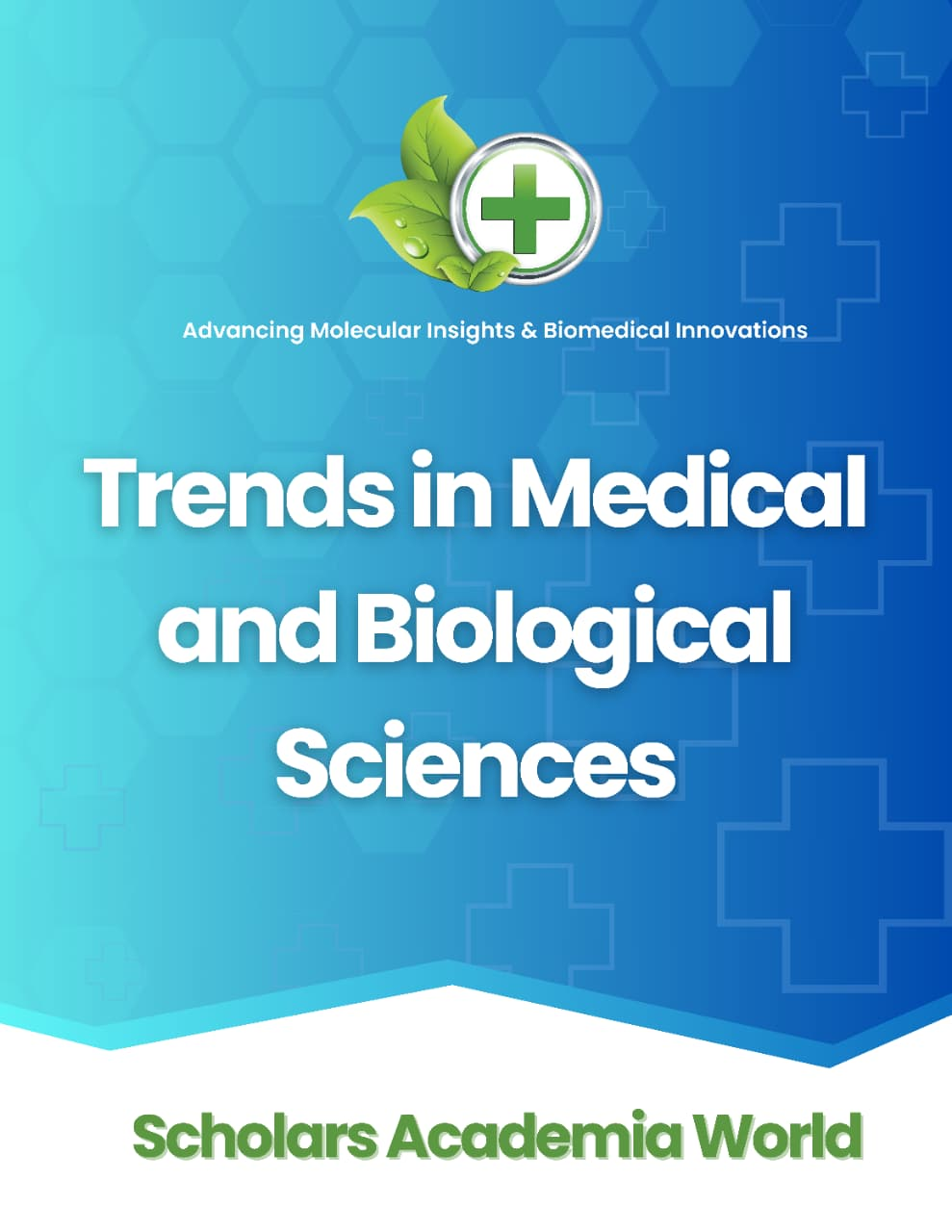Journal Information
Name of Journal: Trends in Medical and Biological Sciences (TMBS)
Journal Frequency: Quarterly
Online ISSN (E): 3106-6984
Online ISSN (P): 3106-6976
Language: English
Publisher: Scholars Academia World (SMC-Private) Limited
Review Type: Peer-Reviewed
Area of Publication: Medical and Biological Sciences






